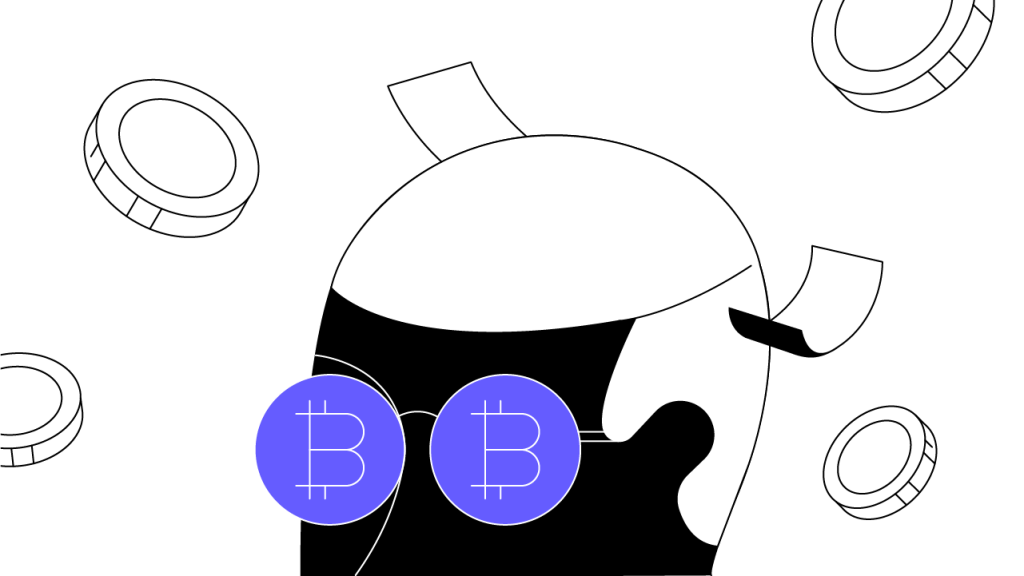Contents
Bitcoin Cash (BCH): There’s More Than One Bitcoin?
Inspired by a desire to improve Bitcoin’s scalability, Bitcoin Cash was designed as a practical cryptocurrency for everyday transactions.

Summary
Bitcoin (BTC) is a relatively new development. Despite having launched in 2009, BTC has already spawned numerous alternative coins (altcoins). Somewhat controversially, one of the first altcoins incorporates Bitcoin in its name — but what is Bitcoin Cash (BCH)? Based on the original Bitcoin code, Bitcoin Cash implements several technical changes that have far-reaching implications. Inspired by frustration with Bitcoin’s scalability challenges, BCH was designed to be a more practical cryptocurrency for everyday transactions on the blockchain. Its increased block size — which translates to faster processing speed — encourages use as a payment system rather than as a store of value.
Bitcoin Hard Fork: What Is Bitcoin Cash?
The (BTC) protocol was designed in 2008, and the network itself went online in January 2009 with the mining of what is called the — the first block on the Bitcoin blockchain. Over the years, the Bitcoin community grew from a small community of computer scientists and cryptographers to become increasingly mainstream. As Bitcoin adoption grew, different opinions and strategies about how to accommodate this growth emerged within its core group of developers.
In , the network was more than capable of managing the transaction load of a niche community of developers. But as its popularity grew, the network got bogged down with an increasingly large number of transactions, ultimately slowing their processing time. The concern was that eventually if nothing was done, Bitcoin transactions might take days or weeks to clear, which could also require that users pay higher fees to accelerate the process. Neither scenario was ideal, and this became known as Bitcoin’s problem.
Solutions were proposed by two camps: those who sought to increase the , and those who sought to keep the block size small. The block size refers to how much data each block in a particular blockchain can contain. Bitcoin’s maximum block size is 1MB, which is not a lot of data by most technological standards. There were, of course, pros and cons on both sides of the debate, but none convincing enough to unite the community of developers.
Because the core developers could not reach a consensus about the appropriate path forward, a of the original Bitcoin protocol occurred in August 2017. In both soft and hard forks, developers make an update to the original blockchain, which not all of the accept. In the case of a hard fork, the nodes that do accept the update are migrated to a new blockchain and the coins on the new blockchain are separate and unique from the original ones. Thus, (BCH) was born, complete with a unique Bitcoin Cash blockchain and BCH cryptocurrency.
Why Create a Second Bitcoin?
Transaction speed is crucial to the scalability, functionality, widespread adoption, and ultimate success of a cryptocurrency. The original Bitcoin can process seven transactions per second, whereas Bitcoin Cash is able to process 116 transactions per second on average. And for context, Visa processes 24,000 transactions per second. In the eyes of BCH supporters, a speed of seven transactions per second wasn’t going to cut it in the long run.
The primary reason for the Bitcoin Cash fork was to increase the number of transactions that could take place each second, which is reflected in BCH’s increased block size. In addition, developers took measures to reduce the total amount of data that needed to be verified in each transaction, which further sped up the process.
The Controversy: Bitcoin vs. Bitcoin Cash
The Bitcoin Cash fork was a hotbed of controversy. Bitcoin’s early adopters were passionate about the project and believed in its long-term potential. Supporters of both Bitcoin and Bitcoin Cash felt that their way forward was the right one, so the hard fork was the only way both equally passionate groups could proceed.
Supporters of BTC argued that BCH’s increased block size meant that it would be more energy-intensive and costly to run a node. More processing power requirements could theoretically become a barrier for individuals to operate nodes and preserve the nature of the network. This could in turn open the door for centralized institutions to take control of the network.
Aside from the deep ideological differences between the two camps, the controversy between Bitcoin and Bitcoin Cash also stems from the latter’s appropriation of the Bitcoin name. Although BCH is technically very similar to BTC, many believe that using the Bitcoin name is to some degree disrespectful.
Further, after Bitcoin creator disappearance from the Bitcoin community, many speculated about what Satoshi’s original vision for Bitcoin truly was. Different accounts of Satoshi’s vision suggest that his original intent was either more aligned with BTC or BCH. The controversy gets especially heated when significant figures in the cryptocurrency community voice assertions on the matter.
For example, an individual named Craig Wright (who has claimed to be Satoshi himself) has expressed that “Bitcoin Cash is Bitcoin,” sparking blowback from both BTC and BCH supporters. Later, Wright distanced himself from the Bitcoin Cash project and helped launch which went live on November 15, 2018, claiming controversially that Bitcoin SV was the true vision for Satoshi Nakomoto’s Bitcoin.
Despite all the controversy that exists between the two cryptocurrencies, they fulfill largely distinct roles and share only a name. They have different use cases. BTC functions like “digital gold” and operates as a store of value, whereas BCH serves as “digital cash” and aims to be a payment method. Many users understand this and support the further development of both BTC and BCH.

Author
Is this article helpful?
